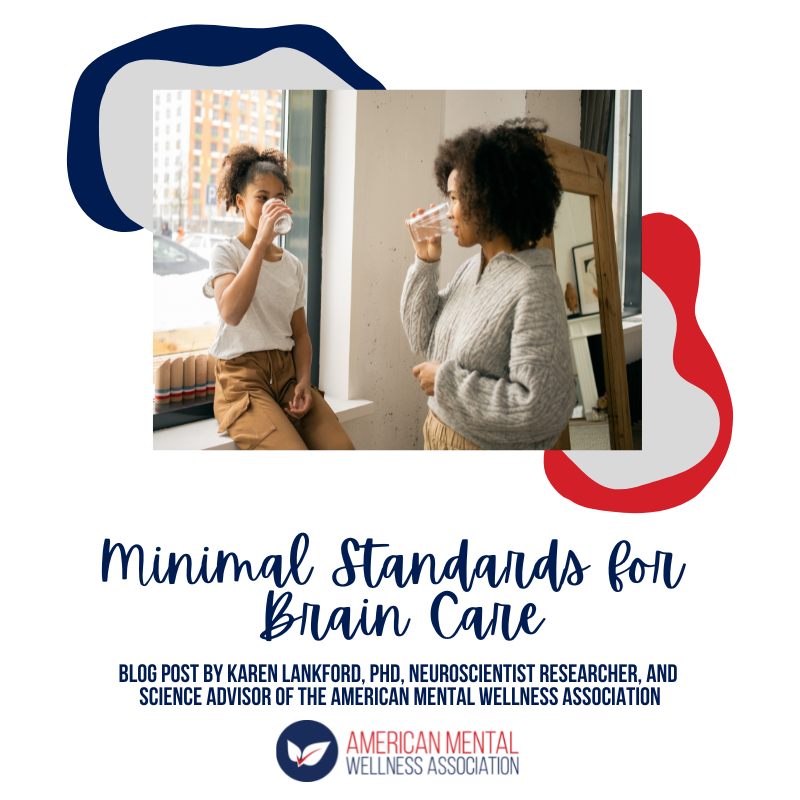Minimal Standards for Brain Care | Karen Lankford, PhD, Neuroscientist at Yale University
Your brain is part of your body, and like the rest of your body, it needs a certain amount of care and maintenance if you do not want it to break down and fail you. There is only so much stress that any organ, including your brain, can tolerate, before it no longer functions properly. Since your brain is pretty important for basically everything that you want to do in your life, you might want to put a little effort into keeping it healthy and functioning as well as possible. Too many people in high stress, high responsibility jobs neglect to pay attention to their brain health and end up burning out or having a break down and needing to walk away from their careers and/or families. Quitting a job or leaving one’s family is generally not a viable option for reducing the kinds of stresses that can come with work and/or family obligations and therefore, it may be useful to consider some basic steps you can take to improve your overall brain health and ability to function in the face of stress. So here are four simple things you might want to add to your life as a minimal standard of brain care:
- Take a brisk 30-minute walk everyday with your phone alarm off. (Bonus points for taking a dog or friend with you.) Regular exercise is the best thing you can do for your brain, and it does not take a lot of exercise to get those benefits. Roughly 30 minutes of more or less continuous movement of most of your body causes your body to produce a key trophic factor which helps keep your brain cells healthy and able to cope with environmental stresses, as well as to adapt and learn. Moving your body this way also helps move food through your digestive track, reducing the negative signals of discomfort caused by digestive problems. It also improves overall circulation and therefore helps all of your organs function better. Turning off your cell phone will reduce your arousal level as you know that you will not have to respond to any crises for the next 30 minutes and this will also give your brain some down time to get caught up on tis backlog of data processing and integration. If you have a dog or friend to walk with you in companionable silence, this will help sooth and relax you.
- Drink an equal volume of water for every caffeinated beverage that you consume. Caffeine is a stimulant that can help you keep alert, but it is also a diarrhetic and will make you slightly dehydrated. This puts a stress on your whole body, but especially on your brain and tends to produce a chronic low-level headache, making it harder to concentrate and adding an additional level of difficulty to every task.
- Take a few minutes before going to bed to do some slow breathing exercises. You have probably been operating on high arousal sympathetic nervous system mode the whole day. You now need to push your body back into rest and repair parasympathetic mode to more easily fall asleep and to allow your body to perform all the routine maintenance tasks necessary to be fully ready for the next day. The only way to consciously switch on your parasympathetic nervous system is to slow your breathing, especially the rate of exhalation.
- Say something positive to someone every day. Give a complement or wish someone well. Just thinking about and articulating these thoughts will cause the language centers of your brain to mildly stimulate the emotional centers associated with positive emotions. On any given day, you may not get any positive reinforcement and brain connections which are not regularly used tend to get weaker or disappear altogether. If you have had a bad day, it will be very hard to think positive thoughts about yourself, but you can get much of the same benefit by wishing wellbeing and good things for others.
Importantly, if you start feeling overstressed and like your life is getting out of control, you should see someone who can help you evaluate and treat the problem. It is always better to treat a problem early than to wait until it has progressed to something much more serious. Someone with an outside perspective can provide a more objective evaluation of cognitive and emotional symptoms than you can on your own, or than the people closest to you. Psychiatrists, psychologists, and other professionals also have a lot more knowledge about different strategies for managing stress than you can learn on your own from an internet search.

